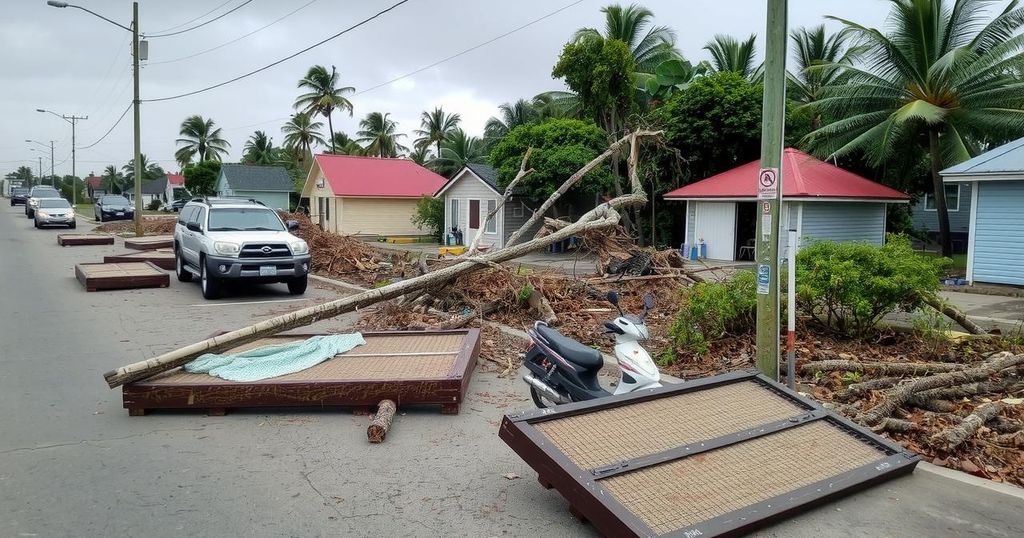Rescue Operations Initiated in Mayotte Following Devastating Cyclone Chido

A rescue operation is underway in Mayotte following Cyclone Chido, which caused extensive destruction with wind speeds of over 140 mph. Essential resources are being dispatched, and a significant number of French military personnel have been deployed to assist with the disaster response.
A significant rescue operation is currently in progress in Mayotte, a French island territory located off the southeastern coast of Africa. The initiative follows the devastation wrought by Cyclone Chido, which produced winds exceeding 140 mph (225 km/h), obliterating homes, infrastructure, and critical facilities including the primary airport and hospital. Reports indicate that the most vulnerable populations, residing in inadequate housing, have experienced the most severe impacts as roofs have been ripped from their dwellings.
Emergency supplies have begun arriving, with one flight delivering resources for temporary shelters; however, many residents still lack access to essential needs such as food, water, electricity, and internet connectivity. In response, over 100 French soldiers have been deployed to assist with the rescue efforts, while an additional 160 soldiers are en route to join the mission. The French weather service, Meteo France, has classified this cyclone as the most powerful storm to affect the region in over nine decades.
Despite its considerable distance of nearly 5,000 miles from Paris, Mayotte remains a French territory, governed by the same laws as mainland France. French President Emmanuel Macron has convened an emergency meeting to address the situation, and additional relief supplies and equipment are being dispatched from Reunion Island, another overseas territory under French administration. In the context of national disasters, cyclones are categorized as tropical storms, similar to hurricanes and typhoons, with distinct regional names. Mayotte falls within the cyclone season that typically spans from December to March in the south-eastern Indian Ocean.
Cyclone Chido’s impact on Mayotte marks a critical moment for the island, highlighting its vulnerability to severe weather events exacerbated by changing climate patterns. Cyclones, characterized as intense tropical storms formed over warm waters, pose significant risks not only to physical infrastructure but also to the health and safety of local populations, particularly those living in poverty. Mayotte, bearing the unfortunate distinction of experiencing the worst cyclone in nearly a century, underscores the need for ongoing support and resilience strategies to mitigate future disasters. The French government’s response exemplifies the importance of swift disaster management and assistance frameworks to bolster recovery efforts in affected regions.
The ongoing rescue operations in Mayotte following Cyclone Chido epitomize the urgent humanitarian response required in the wake of natural disasters. The cyclone’s unprecedented wind speeds and destructive capacity have severely affected the local populace, necessitating immediate relief and recovery efforts. Despite geographical remoteness from mainland France, Mayotte’s status as a French territory ensures that resources and personnel are mobilized swiftly. As the crisis unfolds, the commitment to restoring stability and supporting vulnerable communities remains paramount.
Original Source: www.bbc.co.uk







